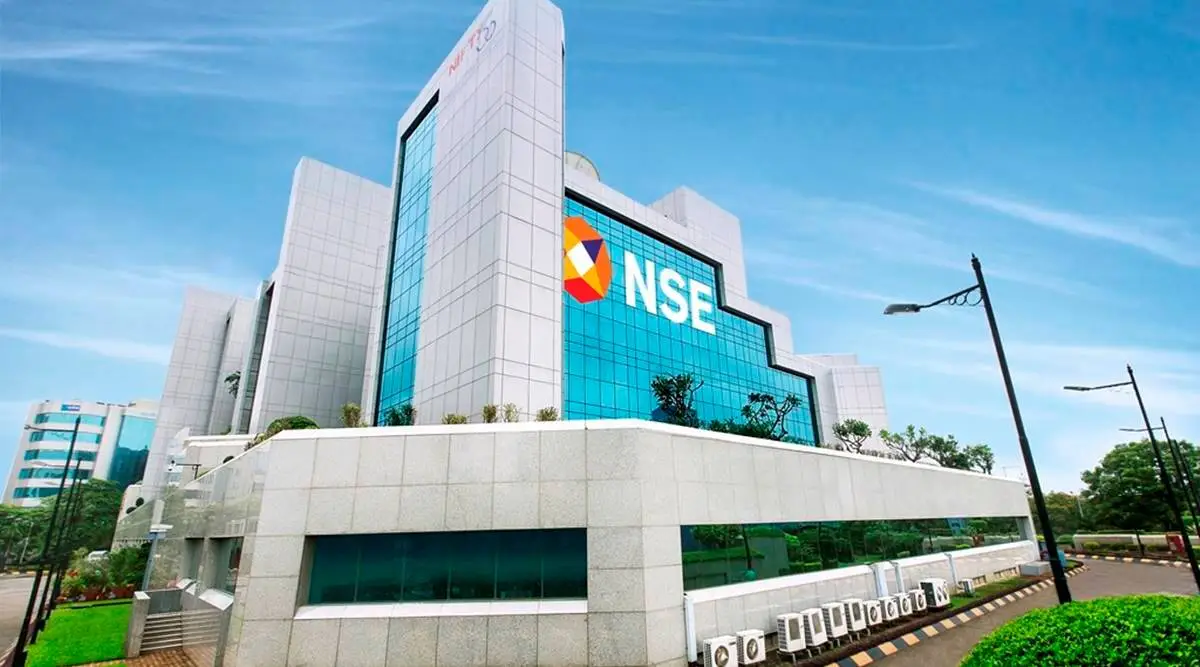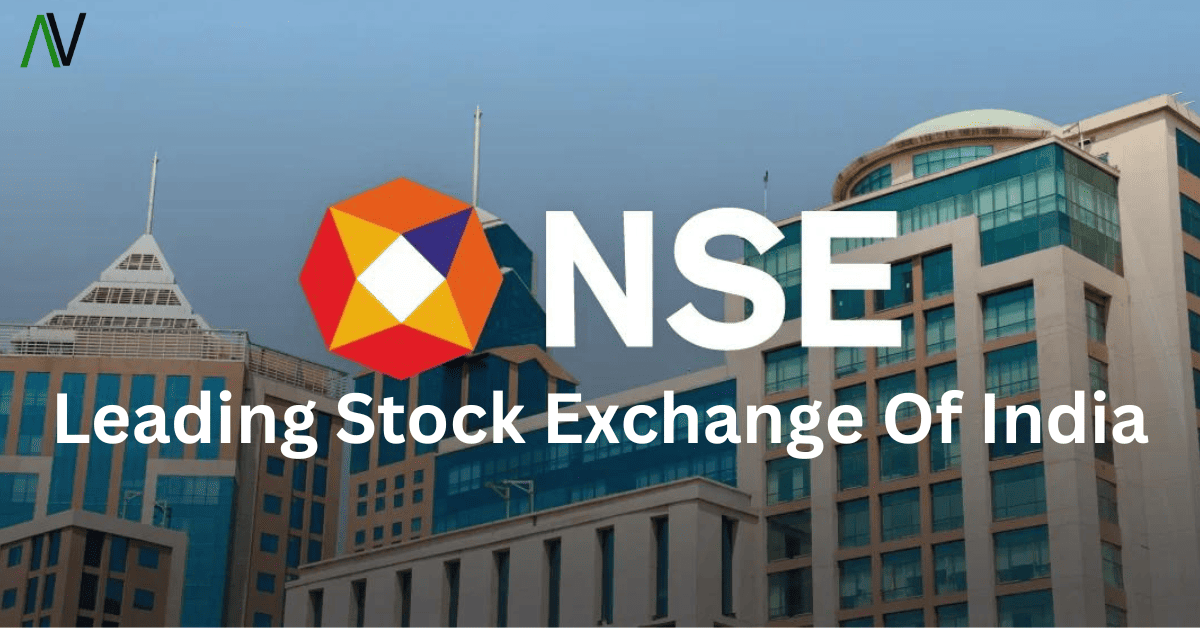What is National Stock Exchange (NSE) ?
The National Stock Exchange(NSE), which was founded in 1992, has evolved into the beating heart of India’s stock market. Unlike the traditional chaos of open-outcry systems, the NSE uses cutting-edge electronic trading platforms that are revolutionizing the way financial transactions take place. This modern approach has streamlined transactions and increased transparency and efficiency, making trading more accessible and dependable for all parties involved. The NSE is now a symbol of India’s financial market evolution and innovation.
How Does National Stock Exchange Work ?
- Exchange Structure:
- The NSE operates as a fully automated electronic exchange, facilitating trading in various financial instruments like equities, derivatives, debt, and currency.
- Trading Mechanism:
- The NSE uses an electronic trading platform known as the National Exchange for Automated Trading (NEAT) system. It enables investors to place buy or sell orders through their brokers.
- Participants:
- There are different types of participants in the NSE, including retail investors, institutional investors, foreign institutional investors (FIIs), market makers, and authorized brokers.
- Order Types:
- Investors can place different types of orders, such as market orders, limit orders, stop-loss orders, etc. These orders are matched electronically based on price and time priority.
- Clearing and Settlement:
- The clearing and settlement process is managed by the National Securities Clearing Corporation Limited (NSCCL), a subsidiary of NSE. The NSCCL ensures the timely settlement of trades and reduces counterparty risk.
- Index:
- NSE is home to several benchmark indices, the most prominent being the Nifty 50. These indices represent the overall market performance and are used as a barometer for the Indian stock market.
- Regulation:
- The Securities and Exchange Board of India (SEBI) regulates stock exchanges in India, including the NSE. SEBI sets rules and regulations to ensure fair and transparent trading practices.
- Technology:
- The NSE relies heavily on technology to ensure a seamless and efficient trading experience. The exchange invests in advanced systems to handle large volumes of trades with low latency.
- Listing and IPOs:
- Companies wishing to list on the NSE need to comply with the listing requirements. The exchange also facilitates Initial Public Offerings (IPOs), allowing companies to raise capital by issuing new shares to the public.
- Surveillance and Monitoring:
- The NSE employs robust surveillance systems to monitor market activities and ensure compliance with regulations. This helps detect and prevent market manipulation and fraud.
Benefits of listing on the National Stock Exchange (NSE)
- Access to Capital:
- Listing on the NSE provides companies with access to a broader investor base, allowing them to raise capital by issuing equity shares. This capital can be used for expansion, research and development, debt reduction, or other corporate purposes.
- Enhanced Visibility and Credibility:
- Being listed on a prominent exchange like NSE enhances a company’s visibility and credibility. It provides a public platform for companies to showcase their financial performance, business strategies, and growth prospects.
- Liquidity:
- NSE is one of the largest and most liquid stock exchanges in India. Listing on the NSE increases a company’s liquidity by providing a ready market for its shares. This can attract more institutional investors and traders, contributing to higher trading volumes.
- Valuation and Brand Image:
- A listing on the NSE can positively impact a company’s valuation. It may result in increased analyst coverage and attention from institutional investors, ultimately enhancing the company’s brand image and market perception.
- Employee Benefits:
- Publicly traded companies often use stock options and Employee Stock Ownership Plans (ESOPs) to attract and retain top talent. Listing on the NSE provides a market for these securities, allowing employees to benefit from the company’s growth.
- Mergers and Acquisitions:
- Publicly listed companies can use their shares as a form of currency for mergers and acquisitions. This facilitates strategic expansion and consolidation within the industry.
- Compliance and Governance Standards:
- Companies listed on the NSE are required to comply with stringent regulatory and corporate governance standards set by the Securities and Exchange Board of India (SEBI). This can lead to improved transparency and better corporate governance practices.
- Access to Institutional Investors:
- Listing on the NSE increases a company’s exposure to institutional investors, such as mutual funds, insurance companies, and pension funds. These investors often prefer to invest in listed securities due to liquidity and regulatory oversight.
- Marketability of Securities:
- Listed securities are often more marketable and can be used as collateral for loans. This can provide companies with additional financial flexibility.
- Global Visibility:
- A listing on the NSE can attract international investors and increase a company’s visibility on the global stage. It may also open doors to foreign capital through Global Depository Receipts (GDRs) or other international investment avenues.
Major Indices in this Exchange System
- Nifty 50:
- The Nifty 50 is the flagship index of the NSE and represents the performance of the 50 largest and most liquid stocks listed on the exchange. It is widely followed and used as a benchmark for the Indian equity market.
- Nifty Next 50:
- The Nifty Next 50 comprises the next 50 largest stocks by market capitalization after the Nifty 50. It represents the mid-cap segment of the market and is often considered a barometer for the broader market.
- Nifty Bank:
- The Nifty Bank index reflects the performance of the banking sector in India. It includes the most liquid and large-cap banking stocks listed on the NSE.
- Nifty IT:
- The Nifty IT index tracks the performance of the Information Technology (IT) sector in India. It includes major IT companies listed on the NSE.
- Nifty Pharma:
- The Nifty Pharma index represents the pharmaceutical sector. It includes major pharmaceutical and healthcare companies listed on the NSE.
- Nifty FMCG:
- The Nifty FMCG index reflects the performance of the Fast Moving Consumer Goods (FMCG) sector. It includes companies involved in the production and distribution of consumer goods.
- Nifty Auto:
- The Nifty Auto index represents the automotive sector in India. It includes companies engaged in the manufacturing and distribution of automobiles and auto components.
- Nifty Metal:
- The Nifty Metal index tracks the performance of the metal sector. It includes companies involved in the production and distribution of metals and mining.
- Nifty Realty:
- The Nifty Realty index represents the real estate sector in India. It includes companies involved in real estate development and construction.
- Nifty Energy:
- The Nifty Energy index reflects the performance of the energy sector. It includes companies involved in oil, gas, and power production.
TOP COMPANIES IN INDIA BY MARKET CAPITALISATION – National Stock Exchange
| Company Name | Last Price | % Change | 52 wk High | 52 wk Low | Market Cap (Rs. cr) |
| Reliance | 2,741.45 | 0.80 | 2,856.00 | 2,180.00 | 1,854,498.14 |
| TCS | 3,882.80 | 3.94 | 3,929.00 | 3,070.25 | 1,420,736.47 |
| HDFC Bank | 1,641.20 | -0.47 | 1,757.50 | 1,460.25 | 1,245,812.86 |
| ICICI Bank | 1,003.50 | 1.25 | 1,043.70 | 796.00 | 705,963.85 |
| Infosys | 1,612.75 | 7.93 | 1,619.75 | 1,185.30 | 668,014.53 |
| Bharti Airtel | 1,076.35 | 1.27 | 1,078.55 | 735.80 | 614,965.47 |
| HUL | 2,544.00 | 0.31 | 2,769.65 | 2,393.00 | 597,806.50 |
| ITC | 466.70 | 0.88 | 499.70 | 326.40 | 582,174.07 |
| SBI | 633.60 | 2.16 | 660.40 | 499.35 | 566,846.73 |
| LIC India | 829.30 | -0.56 | 864.00 | 530.05 | 524,532.06 |
Additional Information on the National Stock Exchange (NSE)
Trading Hours: The NSE operates from Monday to Friday, following a specific trading schedule. The pre-open session begins at 9:00 AM and lasts for 15 minutes, during which orders can be placed, modified, or cancelled. Regular trading commences at 9:15 AM and concludes at 3:30 PM. Additionally, there is a post-closing session from 3:40 PM to 4:00 PM for settling closing prices.
Investor Education: The NSE prioritizes investor education and awareness programs to empower investors with knowledge about financial markets, trading mechanisms, and risk management strategies. These initiatives include seminars, workshops, online courses, and educational materials accessible through their website and affiliated platforms.
Corporate Governance Initiatives: In alignment with SEBI regulations, the NSE actively promotes corporate governance among listed companies. This includes adherence to disclosure norms, transparent financial reporting, board independence, and ethical business practices. The exchange also recognizes companies with exemplary governance through awards and recognition programs.
Market Research and Analysis: The NSE provides a wealth of market research and analysis tools to assist investors in making informed decisions. This includes real-time market data, analytical reports, technical and fundamental analysis tools, and access to research reports from reputed financial institutions.
Investor Protection Fund: To safeguard investor interests, the NSE maintains an Investor Protection Fund (IPF), which compensates investors in case of default by trading members or other unforeseen circumstances. This fund instills confidence among investors and reinforces the integrity of the exchange.
Corporate Social Responsibility (CSR): As a responsible corporate entity, the NSE actively engages in various CSR initiatives aimed at uplifting communities and promoting sustainable development. These initiatives encompass education, healthcare, environmental conservation, and social welfare programs.
Market Surveillance and Enforcement: The NSE operates a robust market surveillance and enforcement mechanism to maintain market integrity and prevent malpractices. Through advanced surveillance systems, suspicious activities are identified and investigated promptly, ensuring fair and orderly conduct in the market.
International Collaborations: In pursuit of global best practices and fostering international relations, the NSE collaborates with leading stock exchanges, regulatory bodies, and financial institutions worldwide. These collaborations facilitate knowledge exchange, technological advancements, and cross-border investment opportunities.


